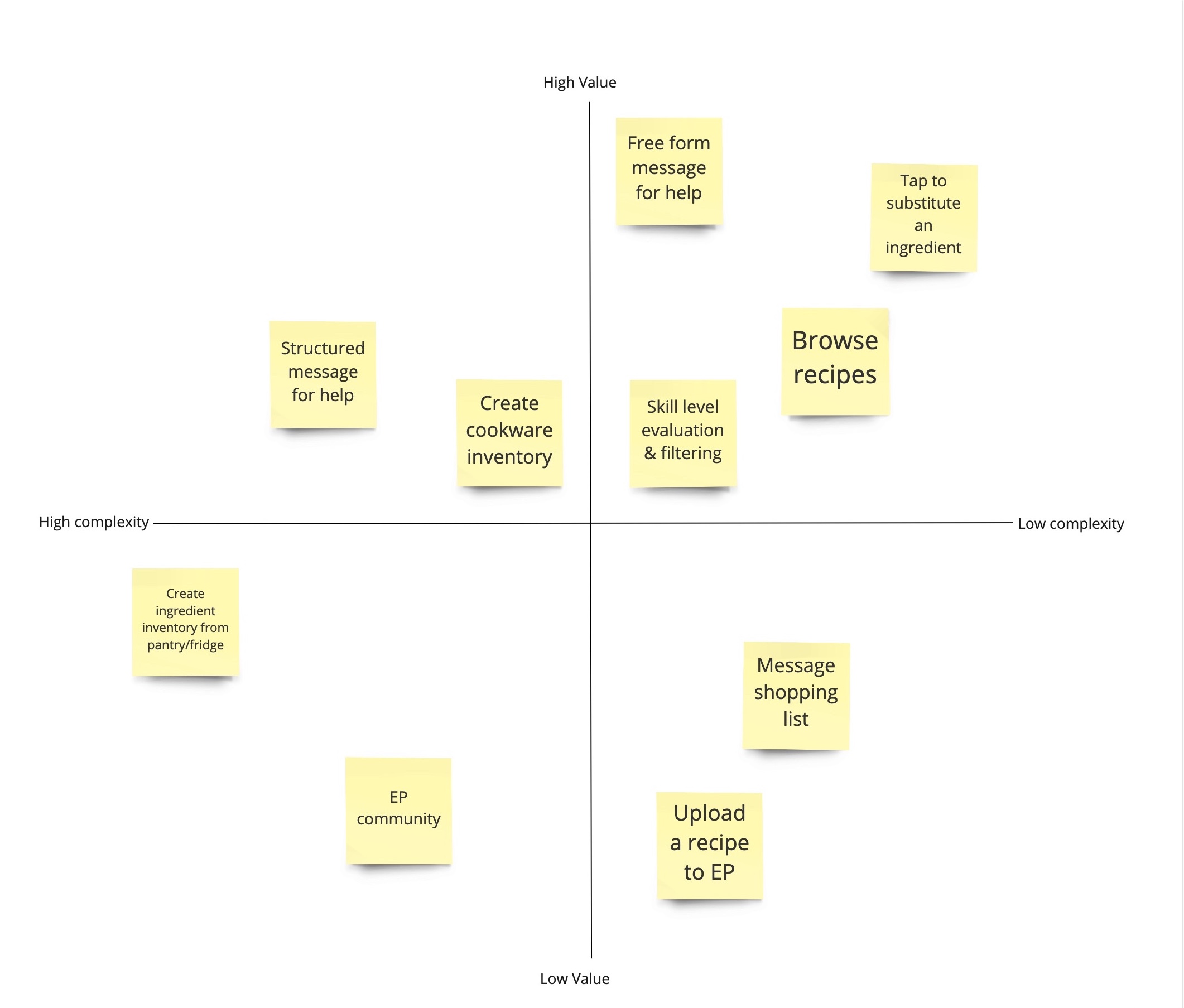
Solution Prioritization
Determine which solutions to explore first
Phases
Suggested Time
1-2 hours
Participants
Core team members (PM, designer, engineers)
Why do it?
Unless you have a systematic way to approach your pile of solutions, you may find yourself overwhelmed with opportunities. Solution Prioritization lets you walk away with a clear idea of the relative priority / complexity of your many groomed ideas as well as the ones you plan to start with first.
When to do it?
- This activity is usually done during Framing and is often preceded by the Solution Brainstorming, Solution Rolestorming, and Solution Grooming workshops
- This activity is often followed by the Scenario Walkthrough and/or Design Studio workshops
What supplies are needed?
- Whiteboard or digital version like Miro
- Solution ideas on sticky notes (or cluster sticky notes from Solution Grooming – coming soon!)
- Dry erase markers
- Blue painter’s tape
How to Use this Method
Sample Agenda & Prompts
-
Construct a 2x2 matrix on the whiteboard using the blue painter’s tape and label the axes clearly using parameters that make sense for your context. For example:
- X-Axis — Higher Complexity (left) to Lower Complexity (right)
- Y-Axis — Lower User Value (bottom) to Higher User Value (top)
Tip: Make sure you define “higher value” in relationship to the top “how might we…” questions
If whiteboard space is limited, you can do this exercise on a window

-
Plot the solution sticky notes on the 2x2 (can go around in a circle, person by person, if desired) and discuss
Tip: Let everyone (PM, design, engineering) weigh-in on user value but only let engineering identify relative complexity
Use this opportunity to extract any immovable requirements from product - especially if they’re business driven

-
Do your best to end with manageable number of solutions in the top right quadrant. The team should feel comfortable about where you land.
Tip: If there are too many priority solutions in the top right quadrant, re-draw the axes within that quadrant to further separate the solutions. Remember that this is possible because the axes are relative, not absolute. Keep adjusting until you land somewhere manageable.

Success/Expected Outcomes
You know you are done when the team has prioritized their solutions and is comfortable that they’ve identified a manageable list of top solutions to explore.
Facilitator Notes & Tips
This is an activity that you can time box if it feels drawn out. Many of the tips embedded above are intended to help you avoid rabbit holes, but if that happens you should feel empowered to move things forward by refocusing the team, setting a timer, or forcing a decision.
Related Practices
Preceding
- Solution Brainstorming
- Solution Grooming – coming soon!
Following
- Scenario Walkthrough – coming soon!
- Design Studio
Real World Examples
